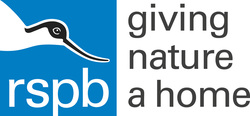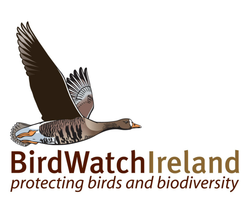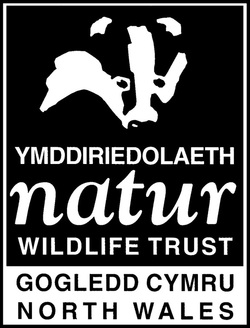Partnership For Roseate Tern

The RSPB is the largest wildlife conservation NGO in Europe, with more than 2,000 paid employees, more than 17,000 active volunteers, and more than 1.1 million subscribing members. It manages more than 200 nature reserves throughout the UK, covering almost 145,000 ha. In addition, it carries out a wide variety of research, advisory, education and advocacy work. As detailed on Form A7, it has been involved as Coordinating or Associated Beneficiary in a large number of previous LIFE projects.
The RSPB has been involved in the conservation of roseate terns - the species on which the project proposed here will focus - for almost 30 years. From 1985 to 1994, it co-funded an educational programme run by the government of Ghana to try to reduce the incidence of trapping of this species on its wintering grounds in Ghana and Senegal. In 1987, it coordinated the production of an action plan for the recovery of the European populations of roseate tern, and from 1989 to 1991 it ran a project with BirdWatch Ireland to implement key activities from this plan. In 1998, the RSPB was named as Lead Partner for the UK Biodiversity Action Plan for roseate tern, and in 2000 it launched a recovery programme for this species on Coquet Island in north-east England, the main breeding site in the UK. In addition to Coquet, several other sites that are designated for roseate tern and covered by the proposed project are managed by the RSPB, including the islands of Inchmickery and Fidra in Scotland, Ynys Feurig and the Skerries in Wales, and Larne Lough in Northern Ireland.
The RSPB has been involved in the conservation of roseate terns - the species on which the project proposed here will focus - for almost 30 years. From 1985 to 1994, it co-funded an educational programme run by the government of Ghana to try to reduce the incidence of trapping of this species on its wintering grounds in Ghana and Senegal. In 1987, it coordinated the production of an action plan for the recovery of the European populations of roseate tern, and from 1989 to 1991 it ran a project with BirdWatch Ireland to implement key activities from this plan. In 1998, the RSPB was named as Lead Partner for the UK Biodiversity Action Plan for roseate tern, and in 2000 it launched a recovery programme for this species on Coquet Island in north-east England, the main breeding site in the UK. In addition to Coquet, several other sites that are designated for roseate tern and covered by the proposed project are managed by the RSPB, including the islands of Inchmickery and Fidra in Scotland, Ynys Feurig and the Skerries in Wales, and Larne Lough in Northern Ireland.

BirdWatch Ireland is the largest independent conservation organisation in Ireland. Established in 1968, it currently has more than 14,000 members and supporters and a local network of 30 branches nationwide.
The primary objective of BirdWatch Ireland is the protection of wild birds and their habitats in Ireland through the efforts of its staff, members and volunteers alike. In order to fulfil this objective, it carries out extensive research and survey work, operates applied conservation projects and manages a network of reserves nationwide. It prepares and advocates policies and recruits, retains and services a growing membership base. It promotes the importance of this work through field education, dedicated media (such as 'Wings' magazine, its onthly ezine 'e-Wings', the BirdWatch Ireland website, its annual journal 'Irish Birds' and other publications), and through social media.
BirdWatch Ireland has been involved in the conservation of roseate terns, in partnership with the state agency the National Parks and Wildlife Service (NPWS), since 1989. Specifically, it is involved in active management at Rockabill, which supports the largest colony in north-west Europe, and at Dalkey Islands, another key site. It also has a long history of involvement in relation to the other main roseate tern colony in Ireland, Lady’s Island Lake, which is currently managed by the National Parks and Wildlife Service.
The primary objective of BirdWatch Ireland is the protection of wild birds and their habitats in Ireland through the efforts of its staff, members and volunteers alike. In order to fulfil this objective, it carries out extensive research and survey work, operates applied conservation projects and manages a network of reserves nationwide. It prepares and advocates policies and recruits, retains and services a growing membership base. It promotes the importance of this work through field education, dedicated media (such as 'Wings' magazine, its onthly ezine 'e-Wings', the BirdWatch Ireland website, its annual journal 'Irish Birds' and other publications), and through social media.
BirdWatch Ireland has been involved in the conservation of roseate terns, in partnership with the state agency the National Parks and Wildlife Service (NPWS), since 1989. Specifically, it is involved in active management at Rockabill, which supports the largest colony in north-west Europe, and at Dalkey Islands, another key site. It also has a long history of involvement in relation to the other main roseate tern colony in Ireland, Lady’s Island Lake, which is currently managed by the National Parks and Wildlife Service.

The North Wales Wildlife Trust is the only local organisation dedicated to conserving the full range of habitats and species across North Wales for the enjoyment of people and the benefit of wildlife. Now over 50 years old, the organisation has grown and developed into an important instrument and voice for nature conservation, and for local people who care about the future of their natural environment. The North Wales Wildlife Trust is one of 47 Wildlife Trusts across the whole of the UK, the Isle of Man and Alderney. We are working for an environment rich in wildlife valued by everyone.
The Wildlife Trust has been involved as Coordinating or Associated Beneficiary in a number of previous LIFE projects. In addition, it has been involved in the conservation of roseate terns - the species on which the project proposed here will focus - for almost 30 years. We have managed Cemlyn, one of the most important tern colonies in Wales, for 43 years.
The Wildlife Trust has been involved as Coordinating or Associated Beneficiary in a number of previous LIFE projects. In addition, it has been involved in the conservation of roseate terns - the species on which the project proposed here will focus - for almost 30 years. We have managed Cemlyn, one of the most important tern colonies in Wales, for 43 years.
Any personal data you provide to us will only be used by the RSPB for the purposes of the Roseate Tern project. For more information about your data protection rights, please see RSPB’s Privacy Policy at https://www.rspb.org.uk/help/privacy-policy/.

